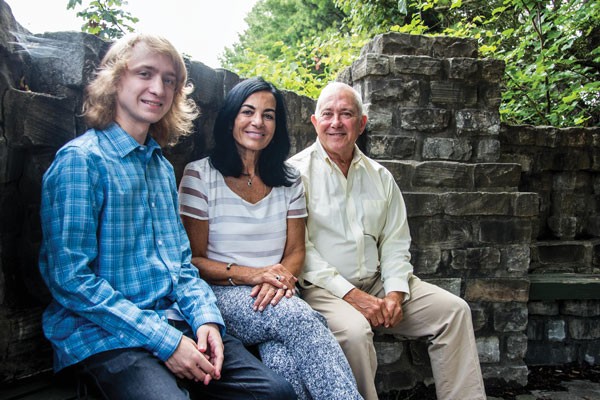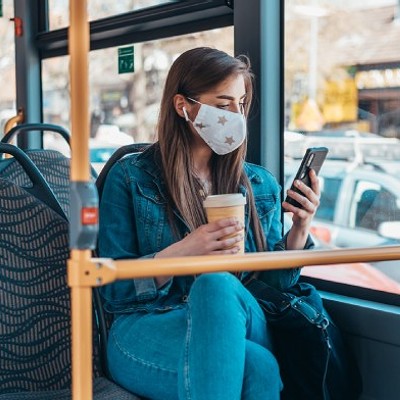When gay-men’s health advocate Dick Keiser moved to Washington County six months ago, he says he noticed a “hidden epidemic” tied to the area’s heroin crisis. HIV and hepatitis C infections in the county were spreading at alarming rates as a result of needle-sharing between intravenous drug users.
According to reports from 2013 (the last year for which data was available), reported HIV cases there increased from 18 to 107 over a seven-year period, with more than 11 percent caused by sharing of needles. And Keiser says it has only gotten worse.
Rural counties, like Washington, that have little to no history of the heroin epidemic, are now experiencing not only increased overdose deaths, but also starkly increased rates of HIV and hepatitis C thanks to the sharing of infected needles.
“In rural communities that this has just never been a problem in, people are really being forced to confront it,” says Alice Bell of Prevention Point Pittsburgh, a clean-needle exchange. “It’s here, it’s a huge problem, and we have to just get over whatever prejudices we have and whatever desire we have to put our heads in the sand, and deal with it.”
Problem is, many counties aren’t taking specific steps to fight the outbreak of these viruses. Advocates and experts agree that needle exchanges — spaces where drug-users have easy access to clean syringes — are the first step in stemming the tide of HIV and other transferable diseases. Pittsburgh has had a needle exchange for more than 20 years, and according to Melissa Wade, spokesperson of the Allegheny County Health Department, HIV rates have remained stable here.
But exchanges are still illegal under state law. And rural politicians and law-enforcement agencies are wary of allowing exchanges, believing they might increase drug use, even though a 2013 study from The Foundation for AIDS Research, along with many other studies, disproved this assumption.
Despite the barriers, Bell says support for needle exchanges is growing. In the past year, Prevention Point has received calls from community groups in almost every Western Pennsylvania county on how to start a needle exchange.
Some advocates, like Keiser, are moving forward with needle-exchange programs, whether county politicians are ready for it or not.
“Washington County is in the process of coming up with something, but they don’t have anything in place yet,” says Keiser. “We are no further behind than the rest of [most counties in Pennsylvania]. Some counties have addressed the issue earlier, but most areas are like Washington County and don’t think that they have health issues.”
Washington County isn’t the only rural county in Western Pennsylvania seeing increased HIV and hepatitis C infection rates as a result of needle-sharing.
According to the National Electronic Disease Surveillance System (NEDDS), not only has incidence of hepatitis C increased in every county in the region, it is drastically higher than it was 10 years ago in the very rural Armstrong, Clearfield and Greene counties.
“Hepatitis C is almost always spread through shared injection equipment,” says Bell. “Places where there is a high rate of hepatitis C, you can bet money that there is a lot of sharing of injection equipment.”
In Somerset County, in the Laurel Highlands, there were only seven reported cases of people living with HIV 10 years ago. But according to 2013 data taken from HIV mapping project AIDSVu, the county’s reported HIV cases have increased by more than 1,100 percent, and of those cases, 40 percent were caused by injection.
Keiser says that many rural counties in the region share similarities that make them susceptible to opioid abuse and the spread of infectious diseases.
“The driving force between opioid addictions is white males who are out of work,” says Keiser. “It is rural counties, it is Appalachia, it is everywhere.”
Despite the data, Keiser says it has been difficult to get county officials to recognize any health problems.
“Washington County doesn’t even have a health department,” he says.
City Paper reached out to Washington County commissioners for comment on their needle-exchange policy, but they did not respond.
Local governments can address the problem by choosing to ignore state law and passing ordinances that provide protection to needle exchanges. (Allegheny County did this with a needle-exchange ordinance in 2008.) Representatives from the Johnstown city manager’s office say that Johnstown’s chief of police is working with groups trying to start needle exchanges. However, neither Washington nor Cambria county, home to Johnstown, has indicated much interest in passing ordinances to protect needle exchanges from prosecution.
Like Keiser, another group in Cambria County is in the process of creating a needle-exchange program anyway. The group, which asked to remain anonymous since needle exchanges are still illegal under state law, is hoping to start its exchange in conjunction with a health clinic in Johnstown.
A Johnstown doctor involved with the group, who spoke to CP, says hepatitis C has exploded in the Johnstown area. According to NEDDS data, the Johnstown region saw thousands of hep C-related hospital admissions between 2010 and 2014, up from around 200 in 2007.
With so much of the population affected, and infections growing rapidly, the Johnstown group believes it’s important to provide clean needles.
“Having people dealing with addiction feeling they are accepted is important,” says the doctor who spoke to CP. “We can’t be judgmental.”
Emma Roberts, of the New York City-based Harm Reduction Coalition, says providing clean needles in a safe space not only reduces the spread of diseases like hepatitis C, but can also lead to a reduction in overall drug use.
“This is not about enabling drug use, it’s about helping people every day,” says Roberts. “You are not increasing the level of drug use. I know from 20 years of experience and seven to eight federal studies that show it does not. It can actually reduce drug use because you are connecting them to services.”
Roberts started her harm-reduction work in Leeds, a working-class town in northern England, two decades ago before coming to the U.S. The town had a serious heroin problem, but the British government started to support harm-reduction techniques like needle exchanges, and she saw the benefits. Roberts says visiting a syringe exchange is the “first step on a ladder to recovery” because exchanges provide information on how to get clean and where to attend support groups.
“It’s not just about a syringe exchange,” says Roberts. “It’s about sex education, a connection to care and treatment of hep C. … Yeah, I am an enabler, but I am enabling people to get healthy.”
Harm Reduction Coalition works on a national scale to educate and help implement needle exchanges. Roberts says that over the past few years, requests for their services have “skyrocketed,” especially since the outbreak in Scott County, Indiana.
The southern-Indiana county is home to the small town of Austin. Over the span of just a few years, the town of 4,000 gained almost 200 new HIV infections, thanks to needle sharing and opioid use. The outbreak was so stark that Indiana governor and current Republican vice-presidential nominee Mike Pence, who originally opposed needle exchanges, created a statewide needle-sharing law, making it easier for local governments to start them.
The Indiana story seems to have affected federal law. “We are seeing the tide change at the federal level,” says Roberts.
She says the federal government is now allowing funds to flow to agencies practicing harm reduction. The funds can be used for outreach, staff and other measures, just not purchasing needles. But Roberts says that “needles are the cheapest part.”
Pennsylvania seems to be shifting too. After new federal legislation was passed in December that changed the guidelines on needle exchanges, the state Department of Health began meeting with Centers for Disease Control and Prevention officials, according to health department press secretary Wes Culp.
“We applaud the CDC in its approach to making needle-exchange programs part of a comprehensive service program,” wrote Culp in an email to CP. Culp wrote that the health department is reviewing how to use its own funds to provide “education and counseling services to reduce sexual, injection and overdose risks; syringe disposal services, navigation services to ensure linkage to HIV and viral hepatitis prevention, treatment and care services.”
However, Culp added that because state law still bars needle exchanges, the department might have to wait to move forward until new state legislation is passed.
Keiser says his group met with representatives from the state health department this month and will meet again in September. He hopes it leads not just to support, but to action.
“It is the first step. It has to go in first, no point in doing anything else without clean needles,” says Keiser. “I am not interested in raising awareness or looking at addressing the issue. We need to stop the drugs and stop spreading diseases.”



















